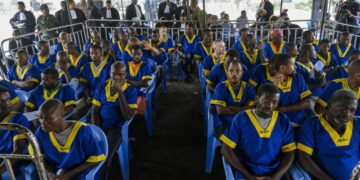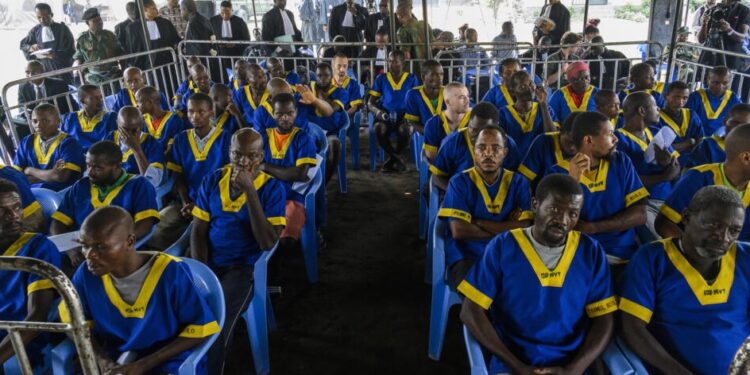By John Ikani
Thirty-seven people, including nationals from the US, UK, Belgium, and Canada, have been sentenced to death in the Democratic Republic of Congo for their involvement in a failed attempt to oust President Félix Tshisekedi.
The group was implicated in orchestrating a May assault on the presidential palace and the residence of one of the president’s close allies.
Christian Malanga, a US citizen of Congolese origin, believed to be the mastermind behind the plot, was killed during the attack, alongside five others.
The case saw 51 individuals brought before a military court, with proceedings televised and broadcast across national media.
Marcel Malanga, the son of the alleged ringleader and one of the Americans sentenced to death, testified that his father had threatened him with death if he refused to participate in the coup.
Fourteen of the defendants were acquitted and released.
While the death penalty remains on the books, DR Congo has not carried out an execution in over 20 years, with death sentences typically resulting in life imprisonment.
In March, the government reinstated the possibility of executions, citing the need to eliminate “traitors” from the nation’s military. Despite this, no executions have been carried out since the moratorium was lifted.
The coup attempt unfolded in the early hours of 19 May in Kinshasa, where attackers first targeted the residence of Vital Kamerhe, the parliamentary speaker, before advancing to the presidential palace.
Witnesses described a group of around 20 armed men, dressed in military uniforms, storming the presidential residence, leading to a shootout.
Later, an army spokesperson went on national television to confirm that security forces had “foiled an attempted coup d’etat.”




































